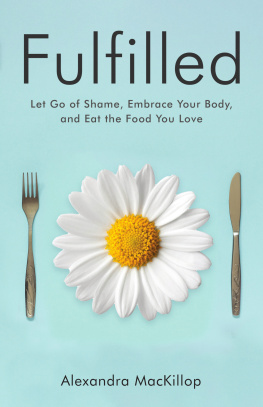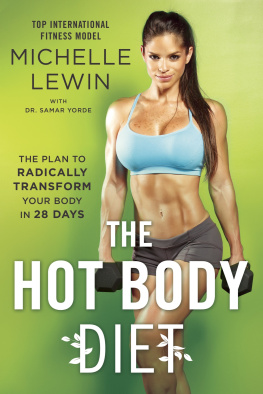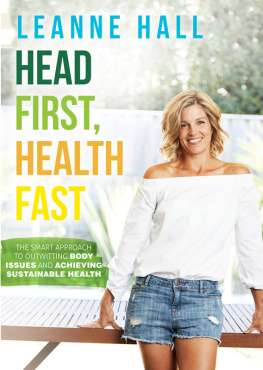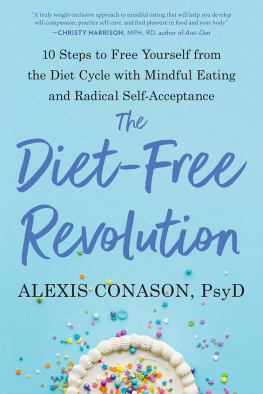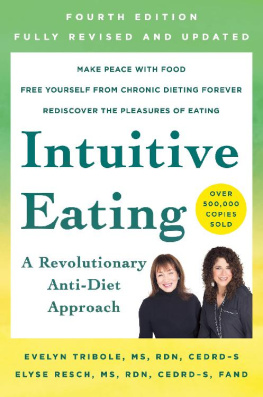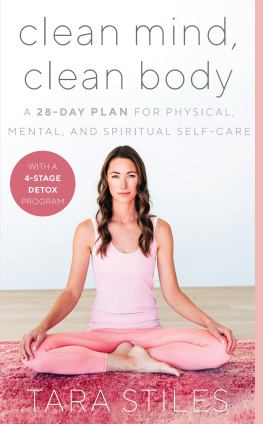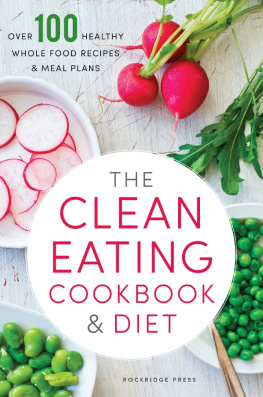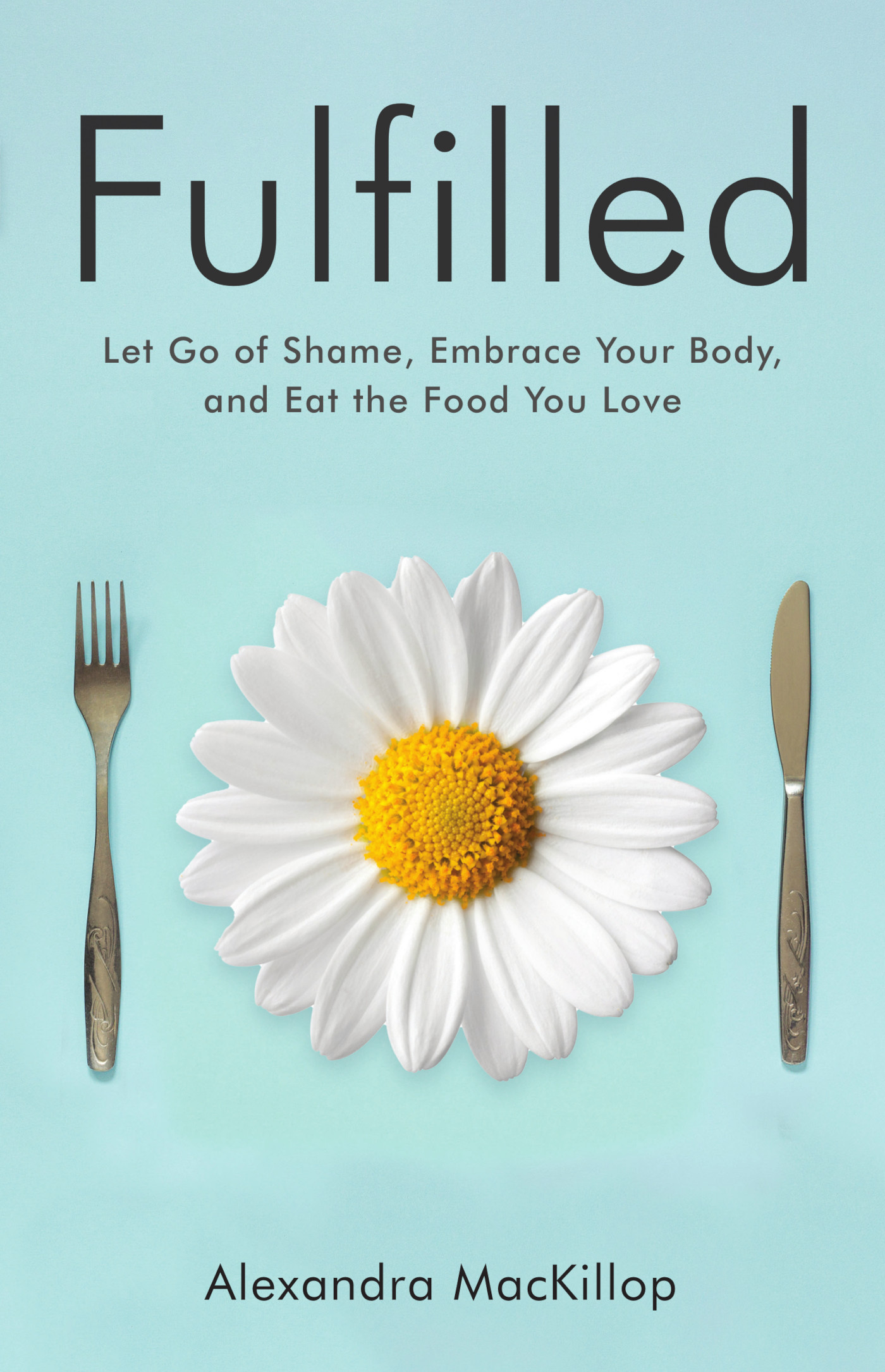
Fulfilled
Fulfilled
Let Go of Shame, Embrace Your Body, and Eat the Food You Love
Alexandra MacKillop
Broadleaf Books
MINNEAPOLIS
FULFILLED
Let Go of Shame, Embrace Your Body, and Eat the Food You Love
Copyright 2021 Alexandra MacKillop. Printed by Broadleaf Books, an imprint of 1517 Media. All rights reserved. Except for brief quotations in critical articles or reviews, no part of this book may be reproduced in any manner without prior written permission from the publisher. Email or write to Permissions, Broadleaf Books, PO Box 1209, Minneapolis, MN 55440-1209.
All Scripture quotations, unless otherwise indicated, are taken from the Holy Bible, New International Version, NIV. Copyright 1973, 1978, 1984, 2011 by Biblica, Inc. Used by permission of Zondervan. All rights reserved worldwide. www.zondervan.com The NIV and New International Version are trademarks registered in the United States Patent and Trademark Office by Biblica, Inc.
Cover image: malerapaso/istock
Cover design: Amy Sly
Print ISBN: 978-1-5064-6682-8
eBook ISBN: 978-1-5064-6683-5
Contents
I magine a life without dieting, without worrying about your weight, and without ever thinking about calories. Exercise is enjoyable, your clothes fit well, you eat your favorite foods on a regular basis, and youre at peace with the woman you see in the mirror.
Does that scenario sound unrealistic to you? Do you think it seems too good to be true to be able to eat whatever youre craving but stay in the same size clothes? Does it seem like a far-fetched daydream to be able to enjoy your favorite foods without worrying about what it will do to your waistline? I used to think so. At one point in my life, I wouldnt have believed it was possible to ever reach a place where I could go even ten minutes without worrying about nutrition labels, calorie counts, or the size and shape of my body. From age thirteen to age twenty, my life revolved around diet, exercise, and the number on the scale.
I started my first diet as a high school freshman because I thought it would help me with my athletic goals, but it quickly became much more than a performance-boosting tool. It took over my life, and I became completely obsessed with food. Cutting back on sweets turned into counting calories, worrying about workouts, and compulsively weighing myselfsometimes three or four times per day. I was fifteen when I was diagnosed with anorexia, significantly underweight but still convinced that the girl I saw in the mirror was too fat. Working with a dietitian and therapist helped me gain back the much-needed weight, but my mind was still consumed with thoughts about food and my body for years afterward. Even though I was recovered from a physical standpoint, I was far from free. I was a slave to food, exercise, and my bathroom scale. But unlike the early high school days when my size-zero jeans were falling off of me, my struggles as a young adult werent so outwardly apparent.
By the time I started college, I had become a self-proclaimed health expert, spending hours every day rewriting recipes to be fat-free, sugar-free, and lower in calories. I scoured health blogs for information about superfoods, constantly researched the newest healthy diet practices, and watched hours upon hours of documentaries about food, exercise, health, and weight loss. But behind my facade of wellness, I was hiding a debilitating secret: my clean eating throughout the day was followed by binge eating at nightand I was more ashamed of that fact than I had ever been of anything else in my life. Even worse, I felt more distant from God than I did before I became a Christian. I was living in a cloud of darkness. Despite my every effort to the contrary, I couldnt contain myself around sweets and snacks, I couldnt lose weight, and I felt completely out of control. I thought I was doing everything right, but instead, my life was falling apart. I felt ashamed, like I was a complete failure because I couldnt figure out something as seemingly simple as eating. But for me, eating wasnt simple at all.
In those seven years, I memorized the calorie count of almost every food imaginable. I counted, measured, and calculated them so frequently that I can even recall most of them todayeverything from carrots to all-purpose flour to Double Stuf Oreos. But although those calorie counts are still hidden away in the corners of my mind, I really couldnt tell you how many calories I eat in a day. I probably couldnt even recall what I ate for dinner last night. Because today, I dont think about food all that much anymore.
Nowadays, my life is characterized by food freedomlike the previously described non-diet scenario. After spending so many years obsessing over diet and exercise and truly suffering because of it, I finally decided that enough was enough. My life needed to change; otherwise, I wouldnt want to keep living it anymore. Ill share more about the details of that challenging transition later, but for now, Ill tell you this: working through my enslavement to food so that I could eat a cookie without panicking afterward was a slow and sometimes painful process. But it was 100 percent worth it, and its exactly what Ill be walking you through in the pages of this book. In the coming chapters, we will explore the world of dieting from a completely new perspective, uncovering everything from the dangers of yo-yo eating patterns to the spiritual ramifications of poor body image, and even discuss the reason our culture is so obsessed with weight loss in the first place. Then Ill guide you through the process of restoring your own relationship with food and your body through a framework called intuitive eating so that you too can learn to let go of shame, embrace your body, and eat the food you love without feeling overwhelmed. Ive taught countless women over the years to do exactly that, and my hope in writing this book is to help you as well.
A Little More about My Background...
My own healing processtrue, holistic healingbegan when I was in college. I was studying food science at the time, with plans to pursue medical school after graduation. But as I continued to repair my relationship with food and likewise grow in my faith, I started to feel drawn toward a profession where I could help others manage their health from a more holistic approach, taking more than just a patients symptoms into account. I wanted to help others heal not only from infectious disease or broken bones but also from the epidemic of dieting and from a broken relationship with food, as I had done. I finally discovered functional medicine, a field where primary health care providers are trained to evaluate patients within the greater context of their lives, including everything from nutrition and exercise to stress levels, emotional well-being, and even spiritual practices. In addition to taking a closer look at their patients lifestyles and histories, functional medicine physicians conduct detailed physical exams, run blood tests, order imaging, and more. As a provider in this field, I have the freedom (and time) to work with my patients more intensively to help them heal not only physically but also in every other dimension of their well-being.
Throughout my health care experience, the magnitude of the diet problem in our culture has become overwhelmingly apparent to me. Almost every woman I talk to, in a clinical setting or otherwise, can relate to the experience of food struggles, body shame, and frustrations related to fitness. Dieting is everywhere, and it destroys peoples livelihoods. Not only do our food obsessions pose an enormous risk to our emotional and spiritual well-being, but they also wreak significant spiritual havoc on us. In dieting, we attempt to control what we ultimately cannot, and we lose sight of our true source of value and worth, which is Christ. Each of us is dearly loved by our creator, and his desire is for us to internalize and lean into that truth. God didnt place us on this earth just to count calories and follow an exercise plan; his desire is for us to thrive in light of his grace, kindness, and compassionthe things that truly give us worth and identity in this life. In my own struggles, I thought, like so many other women, that dieting would help me like my body more. But instead, it had the opposite effectI became even more self-critical, and it made me forget just how loved I already was. It also made me physically sick.
Next page
